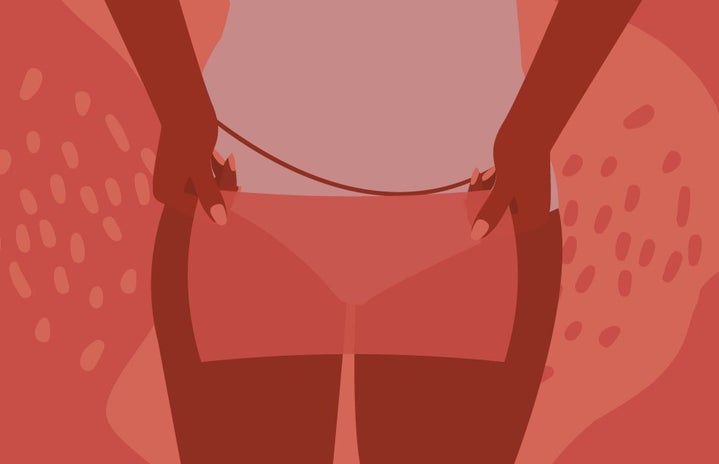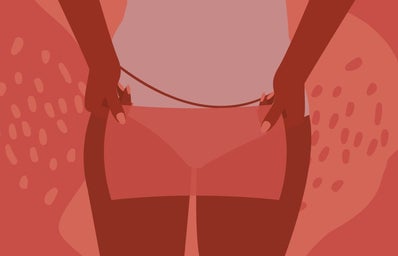Before I begin, I would like to clarify a few things; celibacy was not something I chose, nor wanted to do. This article is not an attempt to shame women for embracing themselves as sexual beings, it is instead about how a year without sex proved to be one of the most transformative and empowering years of my life. By sharing what I learned I hope I can inspire some to reclaim parts of their identity they may have lost and be able to fully embrace themselves and their sexuality.
Before the onset of the COVID-19 pandemic, I was having casual sex with one person on a frequent basis. He would message me late at night, come over and we would have a fleeting, yet good time. I adored these nights we shared and convinced myself that it was something more than it truly was. I was also convinced that this was a healthy and productive sexual relationship, I became so caught up in the moments of pleasure, the touches, the laughs, and the orgasms that I wasn’t paying attention to how I felt when he was gone. I felt out of control and empty, spending my days pining after him and wondering if he was thinking about me, but I convinced myself that it was fine. When the pandemic forced me to move back home, I was finally able to realize how out of control that relationship had truly become. Instead of feeling happy and fulfilled, I felt incredibly alone, extremely stupid and painfully foolish. I was forced to confront a year-long journey of unintentional celibacy.
Uninterested in anyone and with little to do, I began to spend my time performing some much-needed introspection. The more I thought about my past actions, the less I liked them – and the less I liked myself. I had lost the independent spirit I once had and became distant from my own ideas. I immediately wanted to change, I wanted to rediscover myself. As this process began, it became increasingly evident that in order to accomplish this self-realization, it was necessary that I stop giving myself to people, and for me, that meant I had to stop having casual sex. While incredibly difficult, a year of unintentional celibacy allowed me to rediscover myself and reclaim security in my identity.
The hardest lesson I learned was about closure. Closure isn’t something you can find in other people; it is something you give yourself and it only ever comes from within. Seeking closure from someone means you seek their validation – you want their approval or their permission to feel a certain way. If your ability to move on and feel okay is contingent on the person who hurt you apologizing or acknowledging their mistake, you will never achieve it. True closure comes from self-acceptance. I spent a lot of time being angry with myself for becoming someone I didn’t recognize, for losing myself in a non-reciprocal relationship, and while I lived in that anger I was also waiting for an apology. I wanted his validation, for him to recognize my pain, hoping that acknowledgement would alleviate it. In the end, my closure came from forgiving myself, from validating my own emotions.
The funny thing about being accidentally celibate is that your friends aren’t. I spent a lot of time observing my friends and how they conducted themselves, observing how they execute casual sex in such a way that they avoid being hurt. For those who maintain healthy and productive relationships, a common theme is the concept that how sex makes you feel and how the person makes you feel are not mutually exclusive. Just because someone is capable of making you feel pleasure does not mean that they are also contributing positively to your life. Maintaining a casual sexual relationship does not mean that you have to endure toxic people. Casual sex and having standards can, and should, go together.
What months without sex revealed to me was that I didn’t like half of the people I was sleeping with, leading me to mistake a functional and happier relationship for a healthy one. Months without sex allowed me to establish clear standards for myself in all of my relationships; that if I wanted casual sex, I needed to prioritize respecting myself and uphold strict standards for others.
In conversation with a friend on this subject, she mentioned something that really stuck with me; she believes that girls, most of the time, break their own hearts. The more I thought about the idea that we can often cause part of our heartbreak, the more I began to believe her. Making this discovery, I analyzed my friends and their heartbreaks to discover that this is extremely prevalent, breaking your own heart is easily accomplished. This realization put a lot of my actions into perspective and allowed me to promote change within how I date; I no longer wait to respond or over analyze the time between messages, I answer on my own time and don’t let others waste it. No longer do I read into actions or purposefully misinterpret words; I take things at face value and trust my intuition. When my friend brought up this idea of breaking my own heart, I was immediately able to understand how the pain I felt was not solely the other person’s fault, I am also responsible for my emotions, and I am a contributor to my heartache. I encourage you to analyze your heartache and see where you may have contributed to it; taking ownership of your emotions, your pain and your actions is an incredibly liberating act and will enable you to create healthier relationships in the future.
My year of celibacy provided me with some much-needed perspective. In a year solely dedicated to myself, I was able to make some significant realizations and was able, with time, to change and grow. The distance provided me with the tools to improve my relationships with others, better my sex life, and make progress with self-love, forgiveness and my identity. I encourage everyone to have a celibacy break. It doesn’t have to be as dramatic or as long as mine, but I do believe that it can provide you with clarity and allow for incredible self-growth. Sex can be an essential part of your life, but sometimes the best way to embrace your sexuality is to ensure that you are secure in yourself, your identity and what you seek first.


